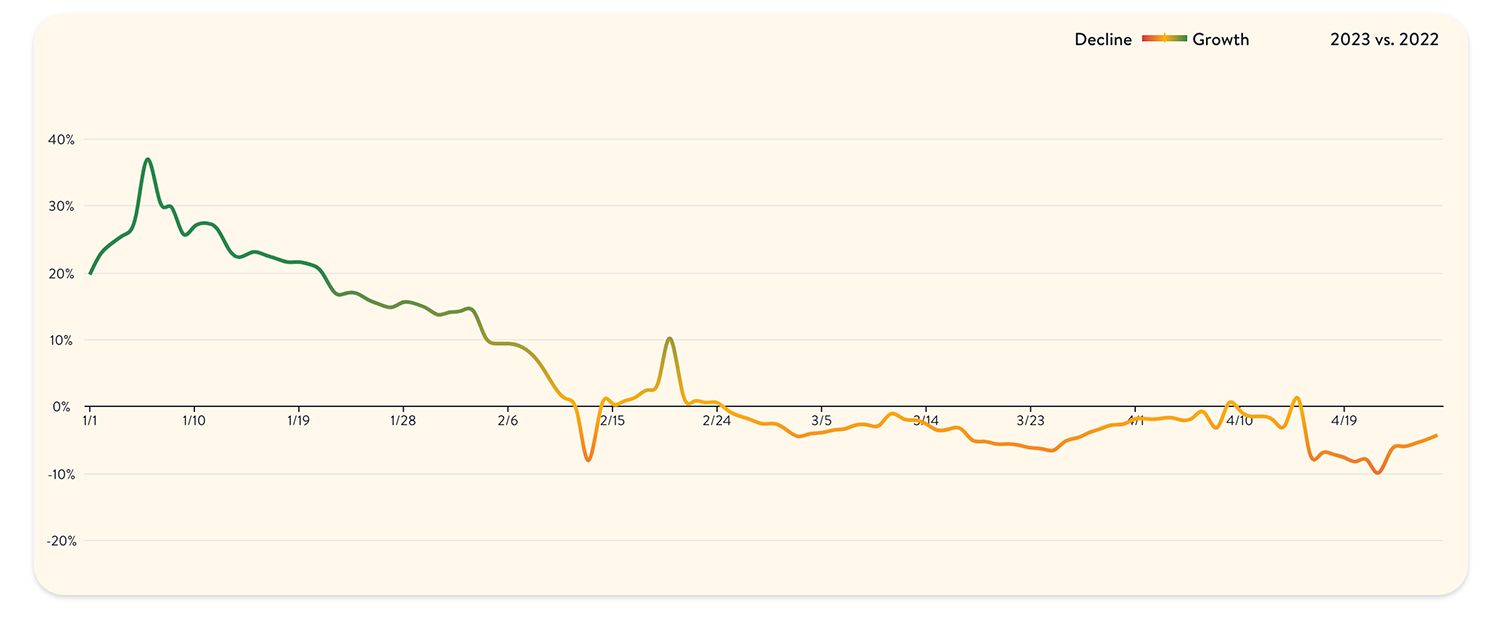A new data set released by reservation-software company OpenTable suggests that San Francisco has fared worse than other major cities in yet another metric of pandemic recovery, and that's restaurant dining.
With the caveat that OpenTable only has data on restaurants that use its service — and many trendier restaurants in SF have moved over to Resy and Tock — a new report from OpenTable paints yet another grim picture about SF's economic recovery. As the Chronicle reports, OpenTable's analysis finds that in 2022, San Francisco's metric of "seated diners" — which accounts for those with reservations made online or by phone as well as walk-ins — was down 41% from 2019.
"These numbers reflect the culmination of many factors: the loss of business in the downtown core, the city’s population decline and pandemic restaurant closures," says Amy Wei, chief revenue officer at OpenTable, in a statement to the Chronicle.
The report finds that SF fared worse last year than other major cities in seeing restaurants fill back up — though Chicago came in second with a 26% drop since 2019. All major cities besides Miami continued to see lower numbers of diners in restaurants last year than before the pandemic, though all cities have seen steady increases since 2021.
OpenTable's data on the first four months of 2023 are also not encouraging — but this might reflect the severe weather that impacted much of the country this winter, keeping many people home. Except for January, which saw improvements in dining-out numbers from 2022 nationwide (the original Omicron variant, which spread like wildfire in January 2022, is likely to blame for that), the first four months of 2023 have been generally down for OpenTable restaurants compared to last year.

This could be incomplete data though, since the U.S. Census Bureau put out a report that contradicts this. Per the Census data, Americans' spending on food services and drinking places was 12.3% higher in March of 2023 than it was in March 2022.
Laurie Thomas, executive director of the Golden Gate Restaurant Association, tells the Chronicle that OpenTable's data on San Francisco might largely be reflective of the steep declines in dining across the downtown core.
"Downtown recovery lags, as many workers continue to work remotely either full or part time," Thomas says, but the recovery has been "uneven" and much more favorable for certain neighborhoods, whose restaurants are full every night.
Walking around the Marina or Hayes Valley one can see this any day of the week, and at many restaurants, we are very much back to a world where you won't get a table unless you reserve a week or two out.
We also can't ignore the possibility that for many people, ordering in, cooking, and hunkering at home have just become more of a habit than they were pre-pandemic, for some segment of the population.
And, Thomas says, everyone is optimistic that the summer tourism season will give everyone a boost.
Photo: Nils Stahl

